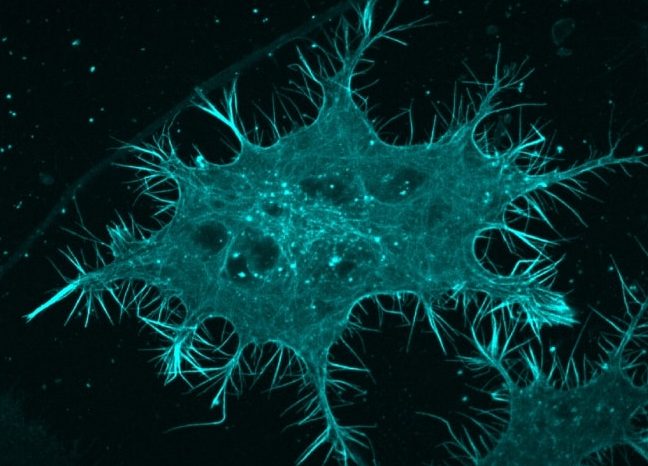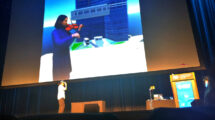In biology, the behaviour of living organic substances such as cancer cells is studied under a microscope. But the light from the microscope damages these tissues and organisms, and they can only stay alive for a limited time – a couple of hours up to a few days. Using the HPC Cloud of the Dutch R&E network SURF, a new strategy has been developed to make microscopes more sensitive.
To validate and optimise the performance and accuracy of the prediction algorithm under different conditions, Venkat Krishnaswami, post-doc in the group of Dr. Erik Manders at the Swammerdam Institute for Life Sciences (SILS) in the Netherlands, had to test many different mathematical models. These operations proved to be very time-consuming when executed sequentially.
“On my own computer, running a simulation took a whole weekend. The iteration – repeating the tests under different conditions – also took a lot of time. This was frustrating, because I had so many ideas I wanted to try out. Then my supervisor told me about SURF.”









Add Comment